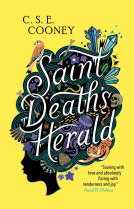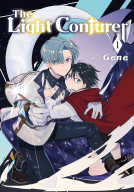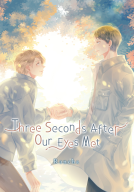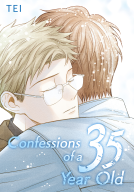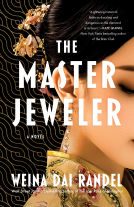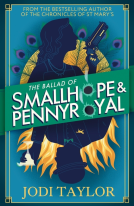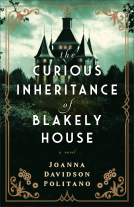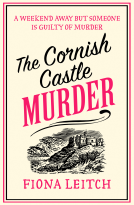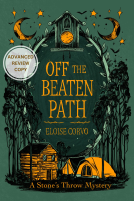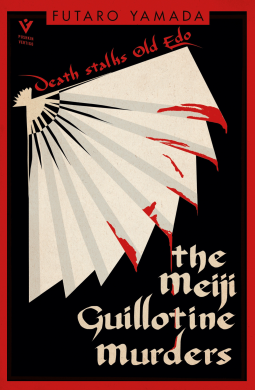
The Meiji Guillotine Murders
by Futaro Yamada
This title was previously available on NetGalley and is now archived.
Send NetGalley books directly to your Kindle or Kindle app
1
To read on a Kindle or Kindle app, please add kindle@netgalley.com as an approved email address to receive files in your Amazon account. Click here for step-by-step instructions.
2
Also find your Kindle email address within your Amazon account, and enter it here.
Pub Date 4 Jun 2024 | Archive Date 15 Feb 2024
Pushkin Press | Pushkin Vertigo
Talking about this book? Use #TheMeijiGuillotineMurders #NetGalley. More hashtag tips!
Description
A captivating locked room murder mystery perfect for fans of Stuart Turton and Janice Hallett
Japan, 1869. A time of reform and rebellion.
Detectives Kazuki and Kawaji are assigned to investigate a series of seemingly impossible murders. Together with the help of a mysterious shrine maiden, can they solve each gruesome death and piece together the dark connection between them?
Taking us deep into the heart of 19th century Tokyo, The Meiji Guillotine Murders is a fiendish murder mystery from one of Japan's greatest crime writers.
Available Editions
| EDITION | Other Format |
| ISBN | 9781782278887 |
| PRICE | US$16.95 (USD) |
| PAGES | 384 |
Available on NetGalley
Featured Reviews
 Reviewer 1306210
Reviewer 1306210
It is Restoration Japan and corruption is seemingly running rampant in Tokyo, or it would be without the talents of Kazuki and Kawaji of the Imperial Prosecuting Office. These men are dedicated to putting an end to the underhanded affairs of the men who make up the new Japanese government so when one murder seems to set off a chain reaction of more bizarre murders linked to Japanese Officials of higher and higher ranking one of these detectives will stop at nothing to see these corrupt men weeded out of the government and one will become an unwitting pawn to a deadly obsession.
I had so much fun reading this! These murders are just quite cleverly executed and some of them definitely remind me of the more bizarre murders found in the Detective Kindaichi series. And I enjoyed how I always knew who the killer was I just couldn't figure out how the hell they did it, it made the reveal that much more interesting to know the who and not the why.
I really enjoyed that this was episodic as well, given how it all comes together at the end I don't believe one continuous narrative would have had the impact the last few chapters of the book has on the reading. Especially given that the end such an insane reveal, although one where you have to stop yourself and say, Nope that all makes perfect sense.
Finally, I'm genuinely torn as to whether or not I like either Kawaji or Kazuki! They both have their points and they make good ones, Kawaji is maybe a little too naive for my taste though and Kazuki is well a little nuts. And I'm glad they were written like that. I think it makes them more believable.
Overall, definitely an excellent mystery novel that is never really what you expect it to be. I think those who enjoy Stuart Turton's style will definitely enjoy this one, especially with the end plot twist, Ruth Ware fans as well.
And as always thanks to Pushkin Vertigo and Netgalley for the eArc!
Detailed and rich setting, you definitely feel the atmosphere of Tokyo as it was. Corruption, instability, and loose structure where anything can fall through the cracks. Reads almost like noir.
 Bookseller 1326424
Bookseller 1326424
The politics behind solving a mystery is wonderfully illustrated through the stories, I did feel at times that it was difficult to follow the plotlines, especially in the beginning. If you pay close attention to the context that is set, you can follow the story well, otherwise like me you might have to keep referring to older pages to follow the book! The twists right at the end are fantastic, so if you're a fan of Japanese literature and translation works, this is to be added to your shelf.
 Dalton S, Reviewer
Dalton S, Reviewer
In this captivating read, the author masterfully weaves a narrative that is both engaging and thought-provoking. Through a blend of richly developed characters and a meticulously crafted plot, the book offers a unique exploration of its central themes, inviting readers to immerse themselves in the story's depth and complexity. The narrative is paced perfectly, balancing moments of intense action with thoughtful reflection, ensuring that readers are hooked from the first page to the last. The author's ability to evoke emotion and create a vivid, immersive world is truly remarkable, making this book a must-read for anyone looking for an exceptional literary experience.
Beyond its compelling storyline, the book stands out for its insightful commentary on the human condition, weaving philosophical questions into the fabric of its narrative. The author's skillful use of language not only enriches the text but also elevates the reader's experience, offering new perspectives on familiar themes. Whether it's the intricate dynamics of relationships, the exploration of identity, or the confrontation with ethical dilemmas, this book tackles complex issues with sensitivity and intelligence. It's a testament to the power of storytelling to illuminate the nuances of life, making it a valuable addition to any book lover's collection. Regardless of genre, this is a work that resonates on multiple levels, affirming the enduring impact of well-crafted literature.
 Madeline M, Reviewer
Madeline M, Reviewer
Thank you NetGalley and Pushkin Press for the opportunity to read this book! My spoiler-free review lies below, cradling its severed head in its hands:
My opinion on this book warmed so much the more I read—while it started feeling a bit like I was pushing through a fairly dense history book at the beginning, by the middle I couldn’t put the book down. The final 40 or so pages were devoured, leaving me thrilled.
For readers expecting a cozy murder mystery or a classic detective novel, know that this is more similar to a bound anthology in nature: our pair of detectives (technically government investigators) investigate five murders over the course of about a year, with the help of a French miko and a gaggle of dimwitted by useful rasotsu. The overarching through line is the interrogation of a Just Government—is it possible for a governing body to be free of corruption, to mete out justice, and to be manned transparently? The two main characters grapple with this throughout, within the heavily-detailed setting of early Meiji Japan.
At times the historical background and set dressing felt dry, and many of the less-fleshed-out characters bled into each other. I think in large part, this is due to my reading this out of it’s original context: many of the characters in the story, including one of the protagonists, are important figures in Japanese history. Even if Japanese readers aren’t necessarily familiar with all of them by name, the backdrop of the Meiji Restoration is enough to provide sufficient context. I can’t fault the writer or the translator for my own ignorance on the topic—I think it’s just worth noting to anyone picking up this book that they may get more of a history lesson than they may anticipate, as this element is less advertised in the summary.
While reading this book, I tried to keep in mind the context of it’s original publication—the late 1970s were a period of marked political, economic, and social change for Japan—and how the novel’s setting must have resonated with readers at that time. What’s more, I feel that Pushkin Vertigo’s decision to publish this book in 2023 is equally as timely. The feel of complete helplessness in a time of political turmoil is just as overwhelming now as it was for the characters in 1869, and I find both protagonists’ diametric ideals about government to echo public sentiment today.
Overall, I had hoped for a detective story and got something a little bit more than that. It wasn’t what I expected, and it had a slightly slow start, but the last chapter left me thinking about it a lot more than I probably would have if it were just another whodunnit. 4/5 stars.
Quite a lot of fun to read but also maybe a bit too elaborate in details regarding the political ins and outs of the Meiji era government. But it is a fascinating time and you feel through the pages who Japan is opening up to ideas of the outside word and feel the struggle of it as well.
I would recommend this book for people who murder mysteries but are also interested in historical details.
The Imperial Prosecuting Office was in danger. Despite being just created, there were already issues with regards to crossovers or overlapping. It was during the earlier years of the Meiji era.
Japan was in chaos and people lost their livelihoods and social status during the transition from Edo. The fall of shogunate was made even more difficult with the arrival of the Western Influence. And then the guillotine arrived, along with the golden haired maiden. This was not received well.
‘ Revere the Emperor, Expel the Barbarians!’
Obviously, the Westerners were deemed as barbarians. However, Esmeralda who was the golden-haired maiden, helped solved several murders when she went into the trance. The murders that first seemed as separate, started to form a pattern. Who was behind this? Was this the classic case of the new trying to get rid of the old? Or was it the other way round?
Personally, The Meiji Guillotine Murders is quite heavy for me. Of course, I understand the need of having a lot of characters and scenes as this was not short of political upheavel but boy! What a journey.
I loved the mystic element. The last murder really took my breath away. I can just imagine a body cradling its own head. I would love to know Esmeralda more. Most of the time, only Kazuki spoke for her. This is not a sign that it is lacking but I was so taken my Esmeralda’s presence every time a spirit was summoned.
Locked door mysteries have always been my favourite and I was totally engrossed in each of the cases in The Meiji Guillotine Murders. At the end of it, I felt like I had just ran a very satisfying marathon. Trying to not spoil the story, the core of the story can be found in guillotine itself. Whatever you make of it, it is up to. What are your thoughts?
Thank you NetGalley and Pushkin Press for providing an ARC in exchange for an honest review.
In the heart of Tokyo at the beginning of the Meiji era, detectives Kazuki and Kawaji of the Imperial Prosecuting Office set out to investigate a series of seemingly impossible murders. Within a friendly rivalry, Kazuki has the upper hand on many investigations with help of his foreign Miko, Esmeralda that helps him put together "whodunnit."
During a time of reform and restoration, the Japanese government is still putting itself back together again, leaving plenty of room for corruption to slip through the cracks. The first "arc" as I will call it, follows a lax group of rasotsu going about their day-to-day business which includes extorting money wherever they can. The remainder of the story mainly follows Kawaji during his investigations, and while learning about each rasotsu was relevant, it didn't seem to be important until quite a number of chapters pass. After the first investigation is kicked off however, I was hooked.
Each method of murder was entirely unique and definitely felt "impossible" as described by Kawaji, but ultimately made so much sense. The writing is very clever in giving the reader only as much information as was available to the detectives without necessarily pushing you towards a solution. As the reader you could take your time to figure out how the murder was possible before the big reveal, which I think is the best way for a mystery novel to be; not obvious, but solvable. I was very excited to learn I was correct in a few of them!
Throughout the book, I did become a bit attached to Kawaji, and I wish there were a little more depth to the personalities of all of the characters. A lot of time is spent discussing the political state of Japan, and while I understand that is integral to what is happening in the story, I do wish more time was spent on the characters as well. It is important to note that several characters, including Kawaji himself, are real people in history, so I do understand that there is only so much creative liberty that can be taken.
I have one final note, but it's important for me to mention that this is not something I let influence my star rating as it is a nitpick with the translation. Many Japanese words are kept, likely to preserve their exact meaning, however there are no foot notes or glossary in the back of the edition I was provided. I do hope one of the two things are added, and again I did not let this influence my rating, and I still highly recommend The Meiji Guillotine Murders to those who have no experience with the Japanese language as it's story narrative is entirely worth it.
—Thank you so much to the author, publisher, and NetGalley for the chance to review an ARC of this book in exchange for an honest review.
I love locked room mysteries and this was no exception.
I got hopelessly lost throughout this whole book and it's only the last chapter that makes the whole make sense. Therefore my advice to anyone reading this book is to take each murder on its own merits and wait till the end for your reward. I'm the world's worst detective so I usually give up hope of working out what is going on very early on. With the Guillotine Murders I gave up halfway through the first murder. This is one of those "trust the process" books.
I'm a huge fan of Japanese literary and crime fiction and I've read a little of the history as well so this book, which is stuffed full of history and culture, was am interesting read even if it hadn't had the murders in but you've got to take it slowly. I tried reading at my normal speed but found I was having to repeat read pages because I'd missed something.
So don't give up top soon, read and digest slowly and I promise you, you will be rewarded at the end.
This is my first Futaro Yamada but I'd definitely read more.
Thanks to Netgalley and Pushkin Press for the advance review copy.
 Reviewer 854813
Reviewer 854813
Really love Yamada's writing. So much tension and the writing really sucks the reader in. Love this series so much.
 Marina S, Reviewer
Marina S, Reviewer
This book is a little different from the recent slew of 'locked room puzzles' that have been translated from Japanese. It is essentially a collection of short stories linked by the same investigators, one a fictional and one a historical character, who have to deal with corrupt policemen under their command and investigate a series of improbable crimes. It also provides a fascinating window into the early days of the Meiji Restoration in 1860s Japan, shortly after a period of fighting amounting nearly to a civil war, and a lot of new political and administrative structures had to be set up from scratch. There is also the 'fear of foreigners' that most Japanese felt at that time - which leads to some amusing situations.
The Meiji Guillotine Murders is an episodic novel structured like a short story collection that lends it self to deliver stunning endings whilst remaining engrossing and detailed.
I would thoroughly recommend this to readers who enjoy historical mysteries and although the cover drew me in as similar to Japanese writers like Seishi Yokomizo, it was pleasantly different.
 Reviewer 1139683
Reviewer 1139683
Interesting read, both in terms of the historical context, the characters and the plot itself. A series of murders is investigated by a couple of officers, with the help of a French Lady who can supposedly speak to the dead - thus exposing the murderers and the way the crimes were commited. While I was expecting something else, probably having misread and misinterpreted the blurb, I was actually surprised in a good sense, for though it was different - albeit, the supernatural aspect I was expecting seemed to be present - the story was good. I wasn't too keen on the writing style, but it didn't put me off. Some parts - especially at the start - read a little too slow, but once everything started coming together, those first chapters started to make sense and when the final part came along, oh boy, I swear I did not expect that ending! Never saw that one coming, but it was so, so satisfactory (except for one tiny detail that felt very off character for Kazuki) and so mind blowing I even cried out loud, thus startling members of my family who happened to be in the same room as I was. It was definitely am interesting and entertaining read.
I've been really into Japanese locked-room mysteries lately (and Japanese translated literature in general). This was a really fascinating dive into 19th century Japan, and into the political and social machinations of that time period. I will say that this ultimately read as more of a historical fiction than a mystery/thriller--it was like a historical fiction with little moments of intrigue and mystery but I liked getting to better understand the historical context that the story took place in. I did enjoy it, but I think people might be a little caught off-guard with the percentage of mystery to historical fiction, haha. I also really love the language of the story, and the way that the writing style was pretty straightforward.
 Reviewer 1149565
Reviewer 1149565
This novel takes place during a fascinating time of Japan’s history during the restoration period, where Japan is opening to the West. It follows two rival investigators, who in some ways are competing to solve murders involving corrupt government officials.
I was really intrigued by this novel and have to say the middle of the book really slowed down where for many chapters there was a repetition of having a chapter centred on a murder a similar ending to close it off.
It really picked up for me with it the last 50 pages where the plot and the previous chapters started to come together. It was at this point too that we got to learn more about the main characters and their intentions. I would give this book a 4/5. The ending really helped get this story back on track.
 Meghan W, Reviewer
Meghan W, Reviewer
Thank you to Pushkin Press and Net Galley for providing a review copy of this book.
I read detective fiction for the vibes, and pretty much only the vibes. I love a locked door mystery even though I know that the chances that I solve the case before the big reveal are slim. And the Meiji Guillotine Murders was no exception.
Honestly, it wasn’t quite what I expected, but that’s not necessarily a bad thing. Going into the book, I thought it was going to be Detectives Kazuki and Kawaji being frenemies and solving crimes with the help of a shrine maiden. But the chapters were all loosely connected stories — so much so that I thought that maybe this was originally published as sort of serials in a monthly publication. But the payoff? It was fantastic.
As the book progresses the cases get a bit weirder (which is saying something because off the bat we’re testing out a guillotine) and there’s some sassy little commentary in there, which I always enjoy.
If you pick it up, I recommend being patient with it since it might be a hard start if you aren’t a history buff.
#TheMeijiGuillotineMurders #NetGalley
 Reviewer 992166
Reviewer 992166
This is 19th century Tokyo locked room mystery set in the Meiji Era. You can expect gruesome murders, detailed investigation and history of the Japan. The investigation is traditional and as the detective solve the murders. One leads to another and many more unthinkable things happens. The narration was good, a bit confusing as well. Though the writing is clever. The mysteries kept me intrigued.
Thanks to the Publisher, Author and Netgalley
 Bookish D, Reviewer
Bookish D, Reviewer
The Meiji period brought about the extensive modernization and Westernization of the Japan and also the period which started with the overthrowing of the Tokugawa Shogunate. The latter part of the era in the early 20th century is also known as the golden age of the Japanese enamels.
During this time of change there was understandably widespread in the country shaped the understanding and process of the writings inspired by the age.
The story is a perfect example of stories out of Japan with locked room mysteries, murder mysteries and eerie-violent stories. This story has some complicated, strange murders which despite the passage of time from when the book was originally written. I have a fascination for these kind of stories which have come out of Japan and this story does not disappoint at any point.
This is an excellent story and one that I have no problem recommending to other readers.
 Felicia Y, Bookseller
Felicia Y, Bookseller
I am always looking for good detektive and murder mystery stories to read. I' glad I stumbled upon this book, the locked- room murder might be a cliché, but one that proves again and again that it is captivating. I'm also very happy about the historical and political elements that were included in the book, because Japan does have a rich and interesting history, so why not.
But for people who do not enjoy these kind of things it might get a bit too much.
 Dan O, Bookseller
Dan O, Bookseller
My thanks to NetGalley and the publisher Pushkin Press, Vertigo for an advance copy of this novel set in Japan during a time of turmoil and lawlessness, mixing both real people and situations into a story of mystery and intrigue.
I used to love reading thrillers and mysteries, but there has been a certain staleness in both genres recently. The ideas don't seem new, the stories pretty much run into each other and frankly reading a book about a shadowy group taking over the government, while watching an attempted coup leader running for president, doesn't appeal to me anymore. Mysteries and police procedurals seem to take far more suspension of belief for me than any fantasy or science fiction books out there. Again just look at the news. However mysteries set in different countries, or even better historical mysteries set in other places, oh I still love those. How different societies deal with crime, investigate it, why crime is committed, shows a lot more about people than most other books can. Especially when written by authors from that country. Fūtarō Yamada was one of Japan's most well known authors, with numerous titles, series, and mangas written under this name and other pseudonyms. The Meiji Guillotine Murders, translated by Bryan Karetnyk, is a novel set in 19th century when Japan restored power to the Emperor, was dealing with building new institutions, and the streets were filled with plotters, assassins, and fear.
The book beings with a note explaining the time and the events leading up to the book. Details are given about the Emperor, the opening of Japan, and the sudden modernization of many things, things, which were not popular to many. Readers are introduced to a group of watchman who spend more time shaking down people, than actually fighting crime. After a drunken night, these men are arrested for fleeing from a robbery by two inspectors of the Imperial Prosecuting Office. The inspectors, Toshiyoshi Kawaji and Keishirō Kazuki, introduce the arrested watchman to a recent French import the Guillotine, executing the robbers, and scaring the watchmen straight. Kazuki has spent time in France, and has brought another French import, a woman back to Japan which is causing no end of problems. Soon there are a string of murders, which with Esmeralda the French woman aid, the soon solve, but the inspectors soon realize that something is linking these crimes together, something much bigger and dangerous.
More of a historical fiction novel, than a straight mystery, but a very good story with a lot of intrigue, and a lot going on. Yamada mixes both real and fictional characters, and events to tell a story about the time of the restoration, and how the seeds for the modern Japanese police were born. Toshiyoshi Kawaji was a real person, and a founder of the police, and many of the cases in the book really did happen in the way they are shown. The narrator of the tale adds in events that fill in details, and better explains why this person hates this person or why this policy is popular, or with killing over. The mysterys are interesting, and sometimes so to is the detection. The characters are well written, and Yamada uses the two inspectors as foils for the different ways that Japan was going, which gives a lot of motivation and explanations for the characters.
Recommended for readers who enjoy mysteries set in far off places, or like to read historical novels set in different countries. Manga readers might also enjoy this as quite a few long running series are set in these times, and Yamada is probably better known in America for his manga work. I fun story that taught me a lot, and keep me enthralled to the end.
"A classic Japanese mystery - a pair of sleuths investigate a series of bloody murders in 19th century Tokyo.
A captivating locked room murder mystery perfect for fans of Stuart Turton and Janice Hallett.
Japan, 1869. A time of reform and rebellion.
Detectives Kazuki and Kawaji are assigned to investigate a series of seemingly impossible murders. Together with the help of a mysterious shrine maiden, can they solve each gruesome death and piece together the dark connection between them?
Taking us deep into the heart of 19th century Tokyo, The Meiji Guillotine Murders is a fiendish murder mystery from one of Japan's greatest crime writers."
What did I JUST SAY about locked-room murders? Catnip!
 Komal H, Reviewer
Komal H, Reviewer
It took me almost 3 months to finish this book because I took so many breaks in between and read it slowly.
The 6, 7 cases of seemingly unrelated but actually very connected murders and death by guillotine punishments described in the book have so many names and information that tends to confuse at time but they keep you hooked, nonetheless.
All the time while I was reading those cases, I kept thinking why they always resort to the Miko to solve their cases but the revelations at the end makes it all worth it. I am glad the last 40-50 pages connected all the dots. It also gives you an idea about how much the corruption and power abuse and injustice was prevalent in those times.
I had absolutely no idea that the ending will tear me up but it did 😭😭😭 Kazuki, the man that you are! Such a treat. Also, the twist about Kawaji 😩 I actually thoroughly enjoyed their conversations, friendship and rivalry in solving those cases.
 Karin C, Reviewer
Karin C, Reviewer
Japan, 1869. A time of reform and rebellion. Detectives Kazuki and Kawaji are assigned to investigate a series of seemingly impossible murders. Together with the help of a mysterious shrine maiden, can they solve each gruesome death and piece together the dark connection between them? A classic locked room mystery in an incredibly interesting era. I highly recommend!
 Nicky M, Reviewer
Nicky M, Reviewer
It's a great mystery and a fun historical fiction narrative, too. Great characters, a surprising conclusion, and a unique setting. For fans of Agatha Christie or Shogun.
The Meiji Guillotine Murders is a compelling historical mystery and the 7th book featuring detectives Kazuki and Kawaji by classic crime writer Fūtarō Yamada. Originally published in 1979, this English language translation from Pushkin on their Vertigo imprint is 384 pages and is available in paperback and ebook formats. It's worth noting that the ebook format has a handy interactive table of contents as well as interactive links throughout.
The pacing begins quite slowly, deliberately, and with a moderately deep dive into the history of the late Tokugawa Shogunate period (1868-1912). The author has a dry factual recitation, and if it fails to thrill and enthrall from the first paragraph, it -is- important and necessary in the context of the story. Readers who are willing to expend some patience, will be well rewarded later for the effort. The different "cases" are somewhat linear and are resolved in order, before moving on to the next. The format is reminiscent of the Judge Dee novels so well translated by Robert van Gulik in the 1950s.
The publisher has a history of plucking out important and lesser known gems from crime and mystery, especially in translation, and this is no exception. The denouement and resolution are especially unexpected in this particular case.
It's unclear from the publishing info given for review, but it appears that this is the only book in the series currently available in English. The translation work by Dr. Bryan Karetnyk is seamless and unintrusive.
Four stars. Probably most appealing for more serious fans/collectors of less known classic crime fiction, but definitely an enjoyable book in its own right. More sensitive readers should be aware that there are beheadings and body part descriptions, integral to the story, but included in the text.
Disclosure: I received an ARC at no cost from the author/publisher for review purposes.
Set in the transformative era of Japan in 1869, the book folllws two detectives tasked with unraveling a string of baffling murders. Alongside a mysterious shrine maiden, they delve into each gruesome crime, uncovering a dark, interconnected web. This classic locked-room mystery, set against a rich historical backdrop, is both intriguing and atmospheric. Highly recommended for fans of historical mysteries!
 Andrea E, Reviewer
Andrea E, Reviewer
I did not expect that ending. But I apriciate that it managed to tie what first apeared as a collection of smaller mysteries into a larger one and did so by building on things that were in the start of the story. It hit me much more emotionally then I thought it would. Like Kawaji I had some suspicion but I was in the same boat as him through the whole story.
I really apriciated the introduction giving the context of the timeperiod and the political climat since it did a lot for understanding the story and the last 10% made me raise this one from a 3 star to a 4 star.
My journey to reading Japanese classic mystery from the different era sensei is continuing with this amazing story.
The Meiji Guillotine Murder take set in the Meiji Era that followed the Restoration. I appreciate how author filled this book brimming with historical details, cultural politic and atmospheric scene of the era. The slower pace is perfect for the story and I wont missed any details.
The cases and investigation it self little bit simplistic with all twist and turn. But I enjoyed it bit by bits such as I watched my series. This book maybe not for everyone but I found my self quite enjoy it. This is my first experience read from Futaro Yamada Sensei and wont become my last.
Note :
The Restoration was an era of major political, economic and social change in Japan. This era brought the modernization and westernization Japan to forge their way from feudal country become modern world's great power.
Thank you Netgalley and Pushkin Vertigo from Pushkin Press for providing copy of this ebook. I have voluntarily read and reviewed it. All thoughts and opinions are my own.
Expecting release date : 4 Juni 2024
This loosely connected series of murders is set in Japan as it was transitioning from being isolationist to more open to ideas and people from outside it's borders. The impacts of the change weigh heavily on the government and policing as two rival detectives try to solve the crimes, many of which have very clever solutions.
As this is a Pushkin re-release, it was written 45 years ago, and feels somewhat slow-going compared to more recent mysteries. That said, the historical data interwoven throughout make it a must-read classic!
Readers who liked this book also liked:
Fiona Veitch Smith
General Fiction (Adult), Historical Fiction, Mystery & Thrillers
